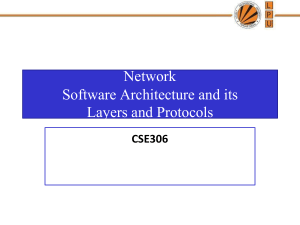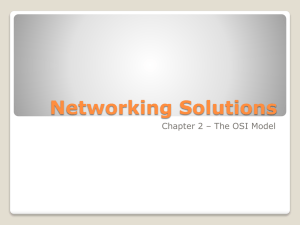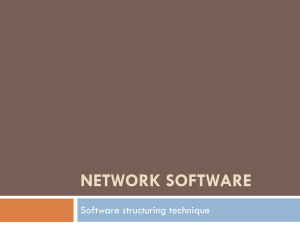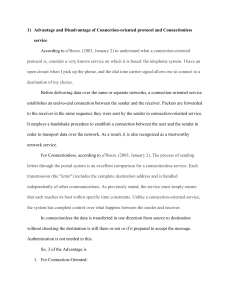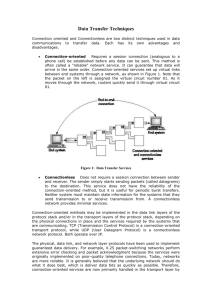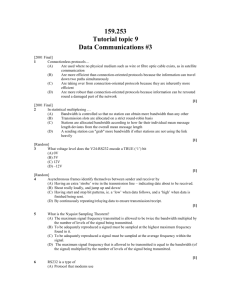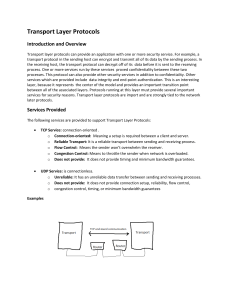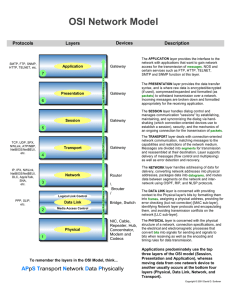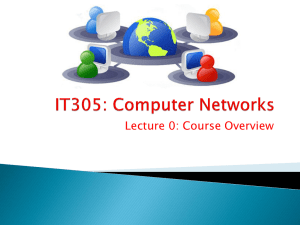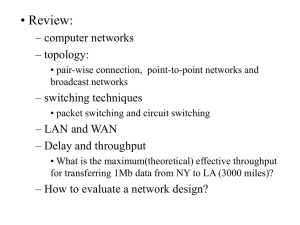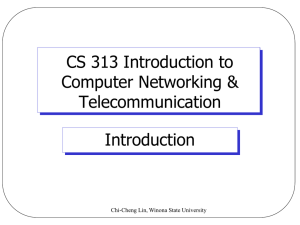2.2 Home Networks
advertisement
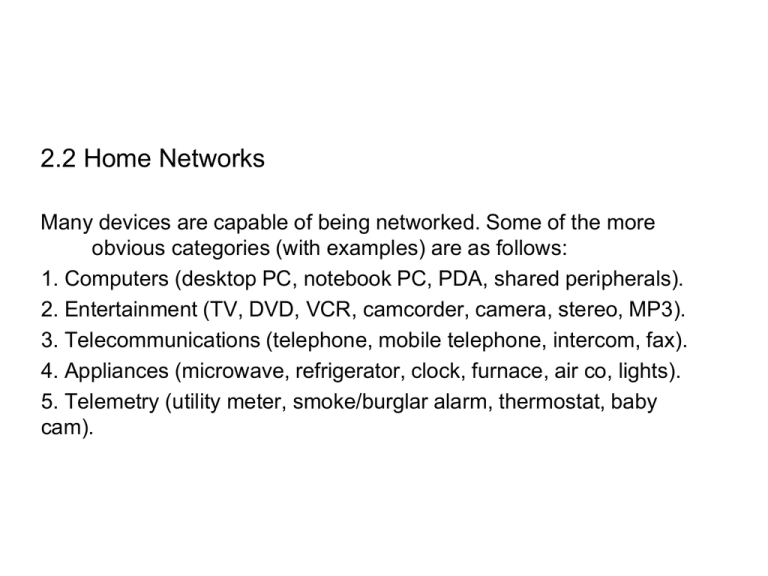
2.2 Home Networks Many devices are capable of being networked. Some of the more obvious categories (with examples) are as follows: 1. Computers (desktop PC, notebook PC, PDA, shared peripherals). 2. Entertainment (TV, DVD, VCR, camcorder, camera, stereo, MP3). 3. Telecommunications (telephone, mobile telephone, intercom, fax). 4. Appliances (microwave, refrigerator, clock, furnace, air co, lights). 5. Telemetry (utility meter, smoke/burglar alarm, thermostat, baby cam). Home networking has some fundamentally different properties than other network types. . First, the network and devices have to be easy to install. . Second, the network and devices have to be foolproof in operation . Third, low price is essential for success. . Fourth, the main application is likely to involve multimedia, so the network needs sufficient capacity. . Fifth, it must be possible to start out with one or two devices and expand the reach of the network gradually. . Sixth, security and reliability will be very important 2.3 Internet works 2.4 Network Software 2.4.1 Protocol Hierarchies Figure 2-5 .Layers, protocols ,and inter faces. Figure 2-6. Example information flow supporting virtual communication in layer 5. 2.4.2 Design Issues for the Layers 2.5 Connection-Oriented and Connectionless Services Figure 2-6 Six different types of service 2.6 Service Primitives Figure 2-7. Five service primitives for implementing a simple connection-oriented service Figure 2-8. Packets sent in a simple client-server interaction on a connection-oriented network. 2.7 The Relationship of Services to Protocols Figure 2-9. The relationship between a service and a protocol.
